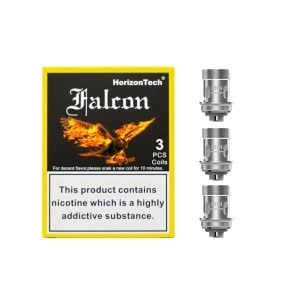The World Vapers’ Alliance (WVA) have come forward to warn smokers about the rampant “misperception epidemic” around tobacco harm reduction.
Recently, research revealed by Ipsos for the think tank ‘We Are Innovation’, that an astonishing 74% of smokers worldwide wrongly believe that vaping is as harmful or more harmful than smoking.
The World Vaping Alliance said: “This widespread misunderstanding is the result of misinformation and costs lives, as millions of smokers waver on making the switch to a significantly proven, 95 per cent less harmful alternative product.”
From the beginning of this year to now alone, the World Health Organization (WHO) has published vaping and nicotine misinformation on more than ten occasions, including statements suggesting that vaping can cause cancer and asserting that vapes often contain more toxicants than cigarettes. This is going against recent research and statements from public health authorities such as the NHS, who published a guide to “Vaping Myths and Facts”, which has debunked some of the most significant misconceptions about vaping to help smokers access high-quality information from reputable sources.
Michael Landl, Director of the World Vapers’ Alliance stated that:

Director of World Vapers’ Alliance
“The World Health Organization has turned World No Tobacco Day into a propaganda day. Sweden is about to become smoke-free thanks to alternative nicotine products. The WHO needs to stop fighting alternative products and start backing them as keys to a smoke-free future.
The WHO is neglecting its responsibility to the worlds 1.1 billion smokers and is actively providing fear mongering, false information, depriving them of what has been proven to be the most successful tool we have in the fight against smoking.
Michael LandlThe WHO’s false claims are fuelling a deadly misperception epidemic. Smokers deserve the truth: vaping is significantly less harmful than smoking. Accurate knowledge could save millions of lives.”
On World Vape Day (May 31st), World Vapers’ Alliance visited the World Health Organization headquarters in Geneva to spread awareness and advocate for vapers’ rights, promoting vaping as a successful harm reduction tool.
Policy Manager at World Vapers’ Alliance, Alberto Hernάndez said:

Policy Manager at WVA
“We arrived with a screen truck displaying testimonials and facts about vaping, aiming to debunk some of the myths the WHO has helped spread, such as the misconceptions that vaping is as harmful as smoking or that it does not help people quit smoking.
Our message was clear: the WHO needs to listen to science and consumers and embrace harm reduction strategies. Vaping has helped millions of smokers quit, and it is crucial that public health policies reflect this reality.
The experience underscored the importance of our mission. We need regulatory frameworks that support smokers in transitioning to less harmful nicotine alternatives rather than imposing prohibitive restrictions that could drive them back to smoking. Our visit to the WHO was a crucial step in raising awareness and pushing for evidence-based policies.”
Alberto Hernάndez

World Vapers’ Alliance praised Sweden as a “beacon of success” in promoting tobacco harm reduction and illustrating how effective the “No Smoke, Less Harm” approach can be.
Through embracing smoke-free alternatives containing nicotine, smoking rates in Sweden have declined by 55% in the last decade and is it the only country in the EU on track to achieve the EU’s smoke-free goal of 5% of smokers worldwide.
“This remarkable achievement can be attributed to the widespread adoption of safer smokeless nicotine delivery methods such as vapes and oral nicotine pouches.”
In return, Sweden’s population has been rewarded with a significantly positive impact on public health, with smoking-related deaths being 22% lower than the EU average and cancer incidence is 41% lower than the rest of Europe, with total cancer deaths being 38% lower.






